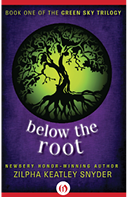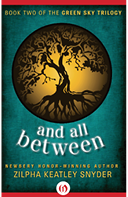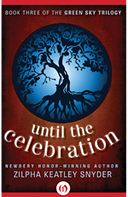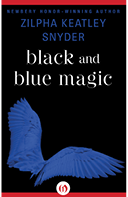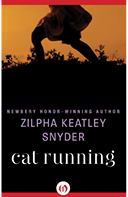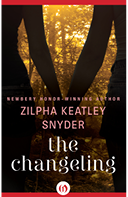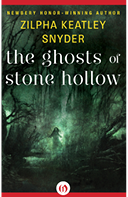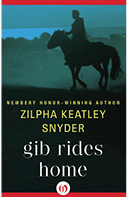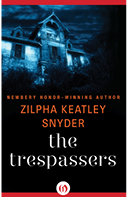Eyes in the Fishbowl (15 page)
Read Eyes in the Fishbowl Online
Authors: Zilpha Keatley Snyder
And speaking of destinations—mine is a lot more up in the air than it used to be. I have at least half a dozen plans that I’m fooling around with. I can’t seem to make up my mind. It’s kind of funny actually, when I used to be so sure of what I wanted—all those years when I was planning to be an executive at Alcott-Simpson’s someday. And now I have to start planning all over again. But I don’t mind. There are a lot of things I’m interested in, and planning is still something that I like to do.
Just a few days ago they started tearing Alcott-Simpson’s down. I guess they’re going to build a huge new office building on the spot. I went by one day to watch, but I didn’t stay long. I didn’t like the way it made me feel. I don’t mind thinking about the things that happened at the store last spring, but I didn’t like thinking about it
there,
with the wrecking ball crashing into the walls. Last night, for instance, when I got the idea for the song, I started thinking about all of it, and I thought it through from beginning to end; and it didn’t bother me at all. For one thing, I’ve quit worrying about what I believe.
I don’t know what other people believe happened to Alcott-Simpson’s, and maybe I don’t even know for sure what I believe. But what
happened
to me was real, and Sara was real, and the difference in me is as real as the difference there’ll be in Alcott-Simpson’s when they’ve finished with that wrecking ball.
Now that I’ve thought about the song some more—the Fishbowl Song—I don’t think I’ll show it to Brett and Jerry after all. It’s a good song, but it wouldn’t mean too much to them, or maybe to anyone else but me. Instead I guess I’ll put it away in a box of important things I keep in my bottom desk drawer. I’ll put it in my scrapbook with the magazine articles that Madame Stregovitch gave me—the ones with the fishbowl and the eyes.
The two articles have been there since right after Madame Stregovitch went away. That was when I took them out of the scrapbook and put them in the drawer where I could get them out and look at them now and then. Every time I do, it amazes me how I was able to look at them that first time and not have it tell me anything. Oh, I noticed the eyes, all right, looking out through the fur lining of the fishbowl—but it didn’t mean a thing to me except an interesting accidental effect. And that just goes to show you how stupid a human being can be.
Zilpha Keatley Snyder (b. 1927) is the three-time Newbery Honor–winning author of classic children’s novels such as
The Egypt Game
,
The Headless Cupid
, and
The Witches of Worm
. Her adventure and fantasy stories are beloved by many generations.
Snyder was born in Lemoore, California, in 1927. Her father, William Keatley, worked for Shell Oil, but as a would-be rancher he and his family always lived on a small farm. Snyder’s parents were both storytellers, and their tales often kept their children entertained during quiet evenings at home.
Snyder began reading and telling stories of her own at an early age. By the time she was four years old she was able to read novels and newspapers intended for adults. When she wasn’t reading, she was making up and embellishing stories. When she was eight, Snyder decided that she would be a writer—a profession in which embellishment and imagination were accepted and rewarded.
Snyder’s adolescent years were made more difficult by her studious country upbringing and by the fact that she had been advanced a grade when she started school. As other girls were going to dances and discovering boys, Snyder retreated into books. The stories transported her from her small room to a larger, remarkable universe.
At Whittier College, Zilpha Keatley Snyder met her future husband, Larry Snyder. After graduation, she began teaching upper-level elementary classes. Snyder taught for nine years, including three years as a master teacher for the University of California, Berkeley. The classroom experience gave Snyder a fresh appreciation of the interests and capabilities of preteens.
As she continued her teaching career, Snyder gained more free time. She began writing at night, after teaching during the day; her husband helped by typing out her manuscripts. After finishing her first novel, she sent it to a publisher. It was accepted on her first try. That book,
Season of Ponies
, was published in 1964.
In 1967, her fourth novel,
The Egypt Game
, won the Newbery Honor for excellence in children’s literature. Snyder went on to win that honor two more times, for her novels
The Headless Cupid
and
The Witches of Worm. The Headless Cupid
introduced the Stanley family, a clan she revisited three more times over her career.
Snyder’s
The Changeling
(1970), in which two young girls invent a fantasy world dominated by trees, became the inspiration for her 1974 fantasy series, the Green Sky Trilogy. Snyder completed that series by writing a computer game sequel called Below the Root. The game went on to earn cult classic status.
Over the almost fifty years of her career, Snyder has written about topics as diverse as time-traveling ghosts, serenading gargoyles, and adoption at the turn of the twentieth century. Today, she lives with her husband in Mill Valley, California. When not writing, Snyder enjoys reading and traveling.
All rights reserved, including without limitation the right to reproduce this ebook or any portion thereof in any form or by any means, whether electronic or mechanical, now known or hereinafter invented, without the express written permission of the publisher.
This is a work of fiction. Names, characters, places, events, and incidents either are the product of the author’s imagination or are used fictitiously. Any resemblance to actual persons, living or dead, businesses, companies, events, or locales is entirely coincidental.
Copyright © 1968 by Zilpha Keatley Snyder
Cover design by Barbara Brown
978-1-4804-7154-2
This edition published in 2014 by Open Road Integrated Media, Inc.
345 Hudson Street
New York, NY 10014

